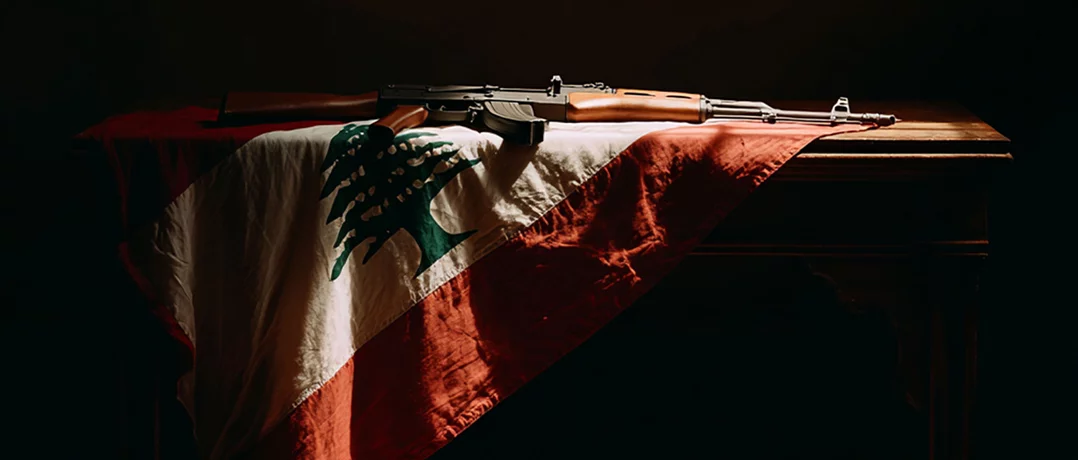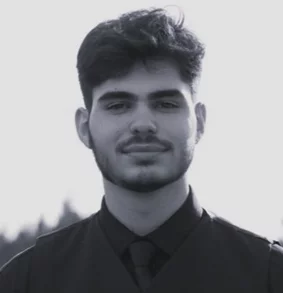Lebanon’s future hinges on resolving security gaps, fostering trust, and integrating armed factions into a peaceful political framework.
Hezbollah and disarmament: What now?

As Hezbollah’s future as an armed movement comes under increasing scrutiny, one pressing question arises: what comes next? Can the country move toward a sustainable model of coexistence and is peaceful disarmament still on the table?
Hezbollah and the security gap
A similar dilemma now looms with Hezbollah. For decades, Hezbollah has justified its arsenal by claiming to protect Lebanon from Israeli aggression. While this claim is hotly debated nationwide, it remains deeply resonant in the south, where government responses to Israeli attacks have often been weak or absent. For many of Hezbollah’s supporters, the group fills a vacuum the state has consistently left unaddressed.
This is not new. Hezbollah and its Iranian backers gained ground in Lebanon because the state failed to provide security, political inclusion, and economic development in marginalized areas. In the 1960s and 1970s, repeated Israeli incursions went largely unanswered by Beirut. Communities in the south felt abandoned by their government and turned to Hezbollah as their guarantor of protection. These grievances, compounded by Lebanon’s unresolved national identity and sectarian divisions, allowed Hezbollah to entrench itself as both a military and political force.
Today, those same dynamics persist. Israeli strikes in the south continue, yet the government’s inability to demonstrate that it can protect its citizens only reinforces Hezbollah’s claim to legitimacy.
The Two-way responsibility
Addressing Hezbollah’s weapons requires a dual effort. On one hand, the Lebanese government must step up and provide real security guarantees to its citizens, particularly in the south. This goes beyond military protection. It requires sustained investment in governance, development, and services that demonstrate the state’s capacity to protect and provide for its people. Only by addressing long-standing grievances can the government hope to undercut Hezbollah’s narrative.
On the other hand, Hezbollah must recognize that its armed role has outlived its legitimacy. The claim that its weapons safeguard Lebanon no longer holds in the current context. Instead, its military presence perpetuates division and instability. If Hezbollah insists on clinging to its arsenal, the risk is not only political deadlock but also the possibility of renewed civil conflict. For disarmament to succeed, Hezbollah must adopt an open-minded approach to integration, accepting that political legitimacy can no longer be anchored in military power.
Reintegration is never a one-sided process. The Lebanese state must act decisively to fill the vacuum Hezbollah leaves behind, while Hezbollah must be willing to transition fully into the political sphere. This will require trust-building measures, credible security alternatives, and a national dialogue that acknowledges the grievances of southern communities without succumbing to sectarian logics.
Without assurances of security and inclusion, a disarmed group may abandon its weapons but retain its warlike discourse, perpetuating cycles of polarization and Lebanon cannot afford that mistake with Hezbollah.
Ultimately, the disarmament and reintegration of Hezbollah is not only about weapons. It is about redefining the social contract between the Lebanese state and its citizens. If the government demonstrates that it can protect, provide, and include, while Hezbollah accepts that its armed era is over, Lebanon can move away from the politics of militias toward the politics of citizenship.
However, based on Hezbollah’s recent position, it seems like it is not willing to adopt that mentality and provide the necessary room for the government to take charge. They consider their weapons to be an existential component of the party. The Secretary-General of Hezbollah, Naim Qassem said on the anniversary of Nasrallah’s assassination that “(the party) is open to everyone and ready for all forms of cooperation with those who stand up to the Israeli enemy”. He also doubled down on the party’s rejection of handing over its weapons saying:
We will never abandon our weapons, nor will we relinquish them
It seems like the window for cooperation is closing, and the chances of civil strife grow ever closer. Unless all the parties involved acknowledge their shared responsibilities, the hope of integration will remain elusive, and Lebanon will continue to hover between sovereignty and fragmentation.



